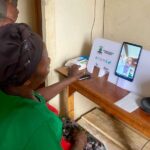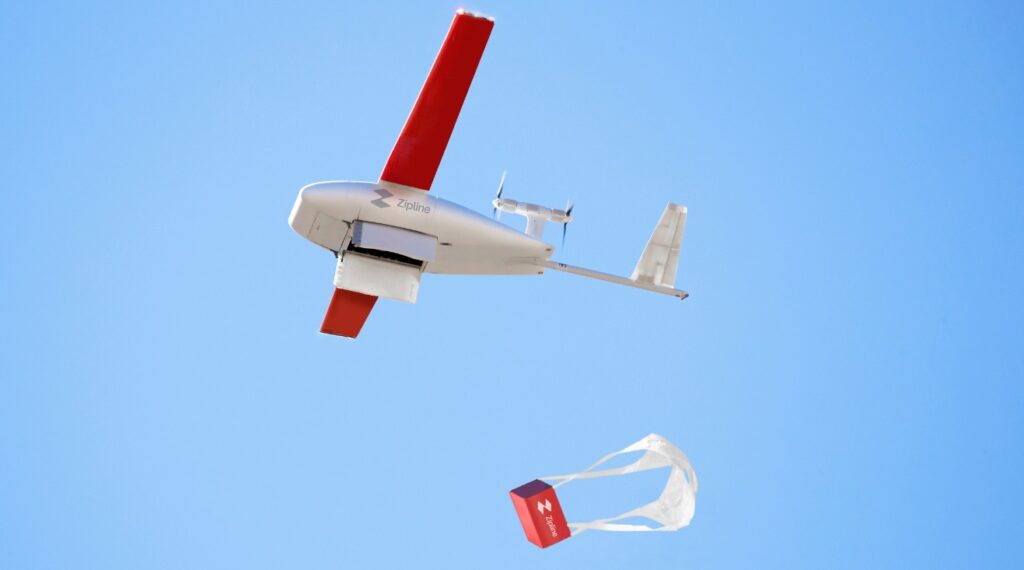Zipline, a logistics company specializing in on-demand drone delivery, is transforming the supply chain for medical products in Africa. This is particularly in remote and hard-to-reach areas.
Africa as a frontier for technological innovation
Many parts of Africa lack access to essential medicines and medical supplies such as blood and vaccines due to poor infrastructure. This is one of the reasons why Zipline, a US Company founded in 2014, decided to test its drone technology in Africa, where the impact would be greatest. In 2016, Zipline started operations in Rwanda, commonly referred to as ‘the land of a thousand hills’. The country has many hard-to-reach areas, making it difficult to deliver life saving medical supplies, using traditional modes of transport. The Government of Rwanda entered into a partnership with Zipline, which now delivers over 75% of Rwanda’s blood supply outside the capital city, using drones. A study by Lancet in 2022 revealed that Zipline’s drone delivery service resulted in a 67% reduction in blood wastage across Rwanda, contributing to greater access to this life-saving product. Zipline has since scaled up its operations including in Ghana, Nigeria, Kenya, Cote d’Ivoire, United States and Japan. The company has made over 1 million commercial drone deliveries since it began operations.
Empowering Communities
In addition to expanding access to life saving products such as blood, vaccines and essential medicines through on-demand drone deliveries, Luke Barasa, Zipline’s Head of Operations in Kenya, states that the company believes in empowering the communities they serve, for instance through job creation. He highlighted that Zipline’s operations and distribution hub in Kenya is 100% staffed by Kenyans. The Kenya distribution hub, which currently serves Kisumu, Homabay, Nyamira and Kericho counties, has capacity to serve the entire Lake Region Economic Block (comprising of 16 counties).
Reduced Emissions
Reports indicate that Zipline drones reduce the carbon emissions of deliveries by over 90% compared to traditional means of transport and are also far more efficient than electric vehicles. Use of drone technology in the healthcare system therefore not only supports efforts towards attaining universal health coverage, but also promotes sustainable practices by reducing carbon emissions.
Public private collaboration to spur innovation
Zipline’s drone operations demonstrate that public private collaboration has the potential to spur innovations aimed at responding to the various challenges of our time. Public procurement laws may however need to be reviewed in order to support procurement of innovative solutions, which respond to needs that may be difficult to solve through traditional procurement processes.

